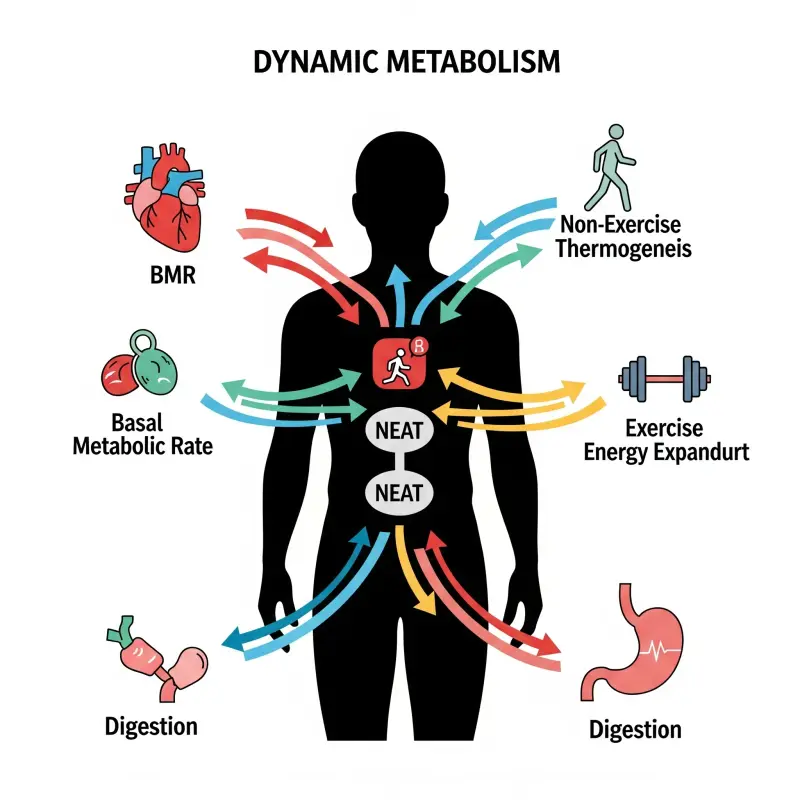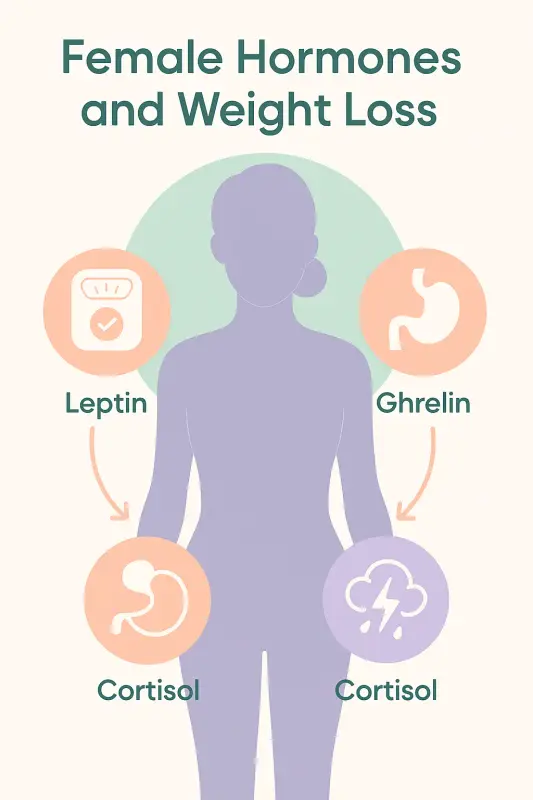Why "Eat Less, Move More" Doesn’t Work — And What Actually Does
```For decades, the phrase "Eat less, move more" has been marketed as the golden rule of weight loss. It sounds simple, logical, and actionable. But for many women, especially those who are already eating healthily and exercising regularly, it just doesn’t work. In fact, this advice can be harmful, both physically and mentally.
Let’s explore why this outdated mantra fails — and what a more holistic, science-backed approach looks like.

1. The Oversimplification of Metabolism
Our bodies are not calculators. The idea that you can simply subtract calories and automatically lose weight fails to consider the complexity of metabolism.
Basal metabolic rate (BMR), thermic effect of food (TEF), non-exercise activity thermogenesis (NEAT), and exercise activity are all contributors to total daily energy expenditure (TDEE). But this system is dynamic, not static. When you drastically reduce calories, your body adapts by slowing down BMR and reducing NEAT. This is called metabolic adaptation, and it’s a survival mechanism.
For example, a 2016 study on "The Biggest Loser" contestants showed that years after the show, participants had significantly slower metabolisms than expected for their body size. Their bodies had adapted to the extreme calorie deficit.

2. Hormones: The Hidden Regulators
Hormones are major players in fat loss, hunger, mood, and energy regulation. Chronic dieting, overtraining, and stress can dysregulate hormones like:
- Leptin: tells your brain you’re full. Low leptin = more hunger.
- Ghrelin: the hunger hormone. It increases with caloric restriction.
- Cortisol: the stress hormone. Chronic elevation promotes fat storage, especially in the abdomen.
Women are particularly sensitive to hormonal changes. Under-eating and over-exercising can disrupt menstrual cycles, thyroid function, and lead to hypothalamic amenorrhea.

3. Mental Health and the Stress Factor
"Eat less, move more" can trigger guilt, shame, and disordered eating patterns. When the scale doesn’t budge, many women blame themselves and double down on restriction.
But studies show that chronic stress (from life or restrictive dieting) increases cortisol and makes fat loss harder. It also impairs sleep — and sleep is crucial for metabolic health.
A study from the University of Chicago found that people who slept only 4-5 hours per night had significantly lower fat loss compared to those who slept 7-8 hours, even on the same calorie intake.
4. Real-Life Cases: Why Women Don’t Lose Weight on a Deficit
Countless women report eating 1,400 calories per day, working out 5 times a week, and still not losing fat. Are they lying or miscalculating? Not always.
- Underreported stress or poor sleep
- Chronic calorie restriction leading to metabolic slowdown
- Micronutrient deficiencies (e.g., low iron, B12, magnesium)
- Thyroid or PCOS-related hormonal imbalances
This doesn’t mean calories don’t matter. But it shows that context matters more.

5. What Actually Works: A Sustainable Approach
- Fuel your body, don’t starve it: Moderate deficits with whole foods and adequate protein.
- Manage stress: Incorporate recovery days, mindfulness, and hobbies.
- Prioritize sleep: Aim for 7–8 hours to support hormonal balance.
- Cycle intensity: Mix strength training, walking, and rest. Avoid constant HIIT.
- Test, don’t guess: If fat loss stalls, check thyroid, cortisol, and iron levels.
Instead of focusing on less food and more exercise, aim for better nourishment, smarter movement, and deeper recovery.
Final Thoughts
"Eat less, move more" may work in theory, but in real life, our biology, hormones, and environment are far more complex. Sustainable fat loss requires a whole-person approach — one that honors your physiology, mental well-being, and lifestyle.
You don’t need to punish your body to change it. You need to support it. And when you do, it responds in powerful ways.
```